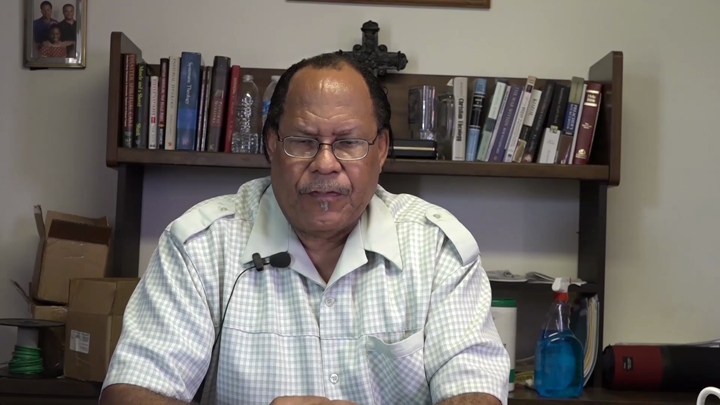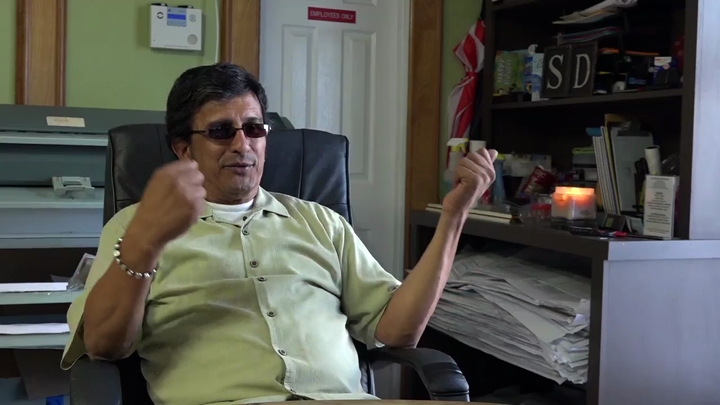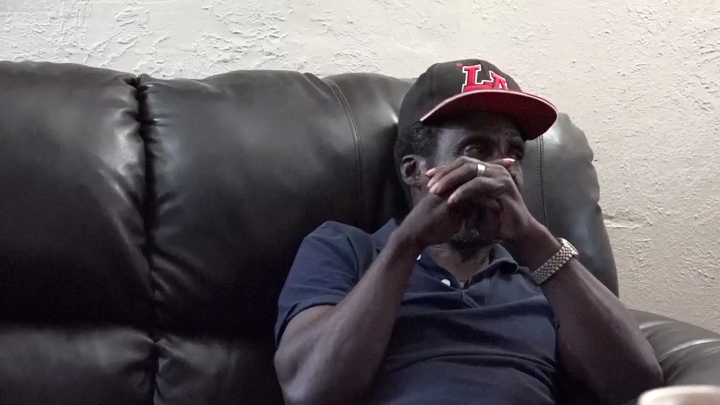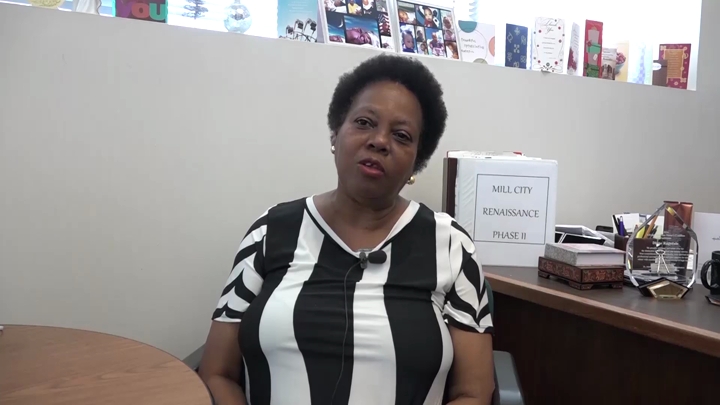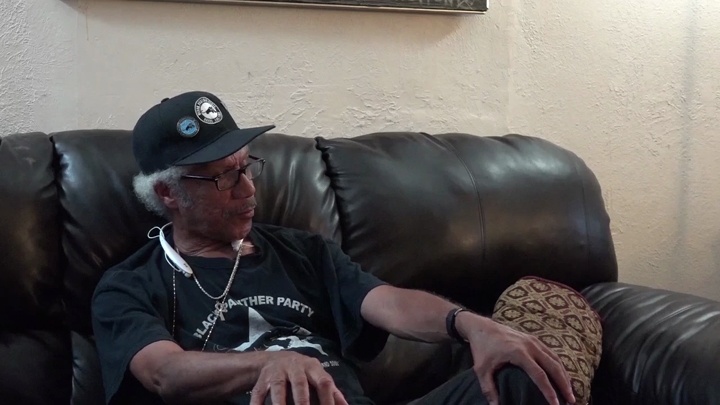Crear / Party Involvement and Prison
sign up or sign in to add/edit transcript
Crear: And we lost a lot of comrades. We lost about thirty-two comrades. It affected Hughie very much. When I went up to Oakland, at one point, I was in charge of photography. I was head of photography and Hughie wanted pictures of all the fallen comrades on the wall at central headquarters. So, we made that happen. Interviewer: (inaudible) depicted at the central headquarters? Crear: Mmm-hmm. Yeah. Right. There was comrades from around the country that were up there. We still got comrades in prison from way back then. Albert Woodfox, he just got out, he served almost forty-four years in solitary confinement and he’s quite a man. He was saying that even—and see his case had got overturned three times, but they refused to—so this last time they told him, “Tell you what, you plead guilty then we’ll just let you go home.” He said “No, cause I didn’t—” They accused him of killing a prison guard but there was really a political motive behind it. He even turned down—they said, “Well, if you plead no contest.” No contrendre which means you’re not admitting guilt or you’re not—he told them no. It took people a while to convince him. They were like, “Albert, you been in here long enough. You got family waiting on you. You got friends waiting on you.” He finally told them OK, he’d go ahead and take the no contendre plea. He said the reason it took him so long, because he said all this time he was in there he had told everybody else to stand up for their rights. Don’t back down. Like he said, they never broke him. He felt that if he took that plea that he’d be letting all them down. Really what made him changed his mind was a trusty. One of the prisoners, a trusty, came to Albert said, “Albert, man, it’s time for you to go home. Nobody’s going to think anything of you. You’ve done your time, you’ve done your—people respect you.” So, like I said, we still got people in prison from way back then. Then you got Assata Shakur. Of course, they want to try to bring her back. Which Castro said, they had told her she could stay there as long as she wants to stay there. Interviewer: What was the community’s reaction in the aftermath of Carl Hampton’s shootout—assassination? Crear: Well, it was a lot of people upset because like I said, the community came out in support. People coming down there during that week, people come down there with donations, with food. A lot of people came down from a lot of different communities to show support. So, when it happened, it was outrage. A lot of people try to portray us as one thing. Mickey Leland became a congressman. He was very close with the party. He used to come to the office saying he wanted to join the party. We used to laugh at him, “Mickey, do what you do. We got this.” Or like Dominick (inaudible), the (inaudible) Foundation. That was one of our biggest supporters. Any time somebody would go to jail and it was a big bail, we’d go sit in the kitchen. Dominick, we need this. Dominick, we need that. We had a broad range of support, contrary to what they want people to believe. Just on the national level you had many prominent athletes, actors and actresses that supported the party. Marlon Brandon—the first—little Bobby Hutton was the first Panther killed and Marlon Brando spoke at his funeral, so we had a wide range, base of support. Not just locally, but internationally.
| Interview | Interview with John Crear |
| Subjects | Police and Law Enforcement › Political Imprisonment |
| Police and Law Enforcement › Prisons | |
| Media › Mainstream Media | |
| Historic Periods › 1970s [Exact Date Unknown] | |
| Historic Periods › 2009-Present | |
| Black Power › Black Panthers | |
| People › Newton, Huey P. | |
| Tags | Woodfox, Albert |
| Shakur, Assata | |
| Leland, Mickey | |
| sign up or sign in to add/edit tags | |
| Interview date | 2016-06-06 |
| Interview source | CRBB Summer 2016 |
| Interviewees | Crear, John |
| Interviewers | Enriquez, Sandra |
| Rodriguez, Samantha | |
| Locations | Oakland, CA |
| Duration | 00:04:58 |
| Citation | "Party Involvement and Prison ," from John Crear oral history interview with Sandra Enriquez and Samantha Rodriguez, June 06, 2016, Civil Rights in Black and Brown Interview Database, https://crbb.tcu.edu/clips/3516/party-involvement-and-prison, accessed February 18, 2026 |


